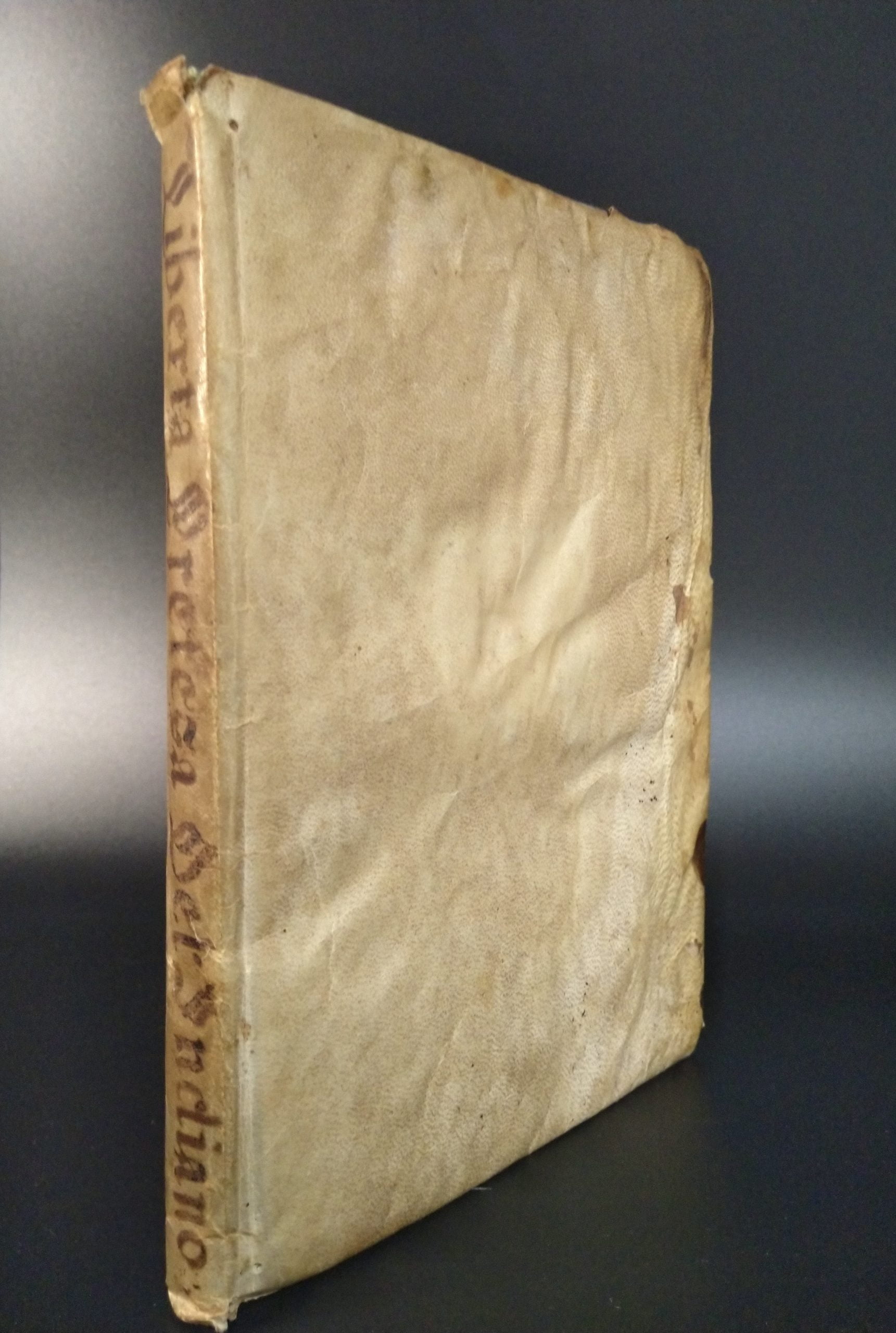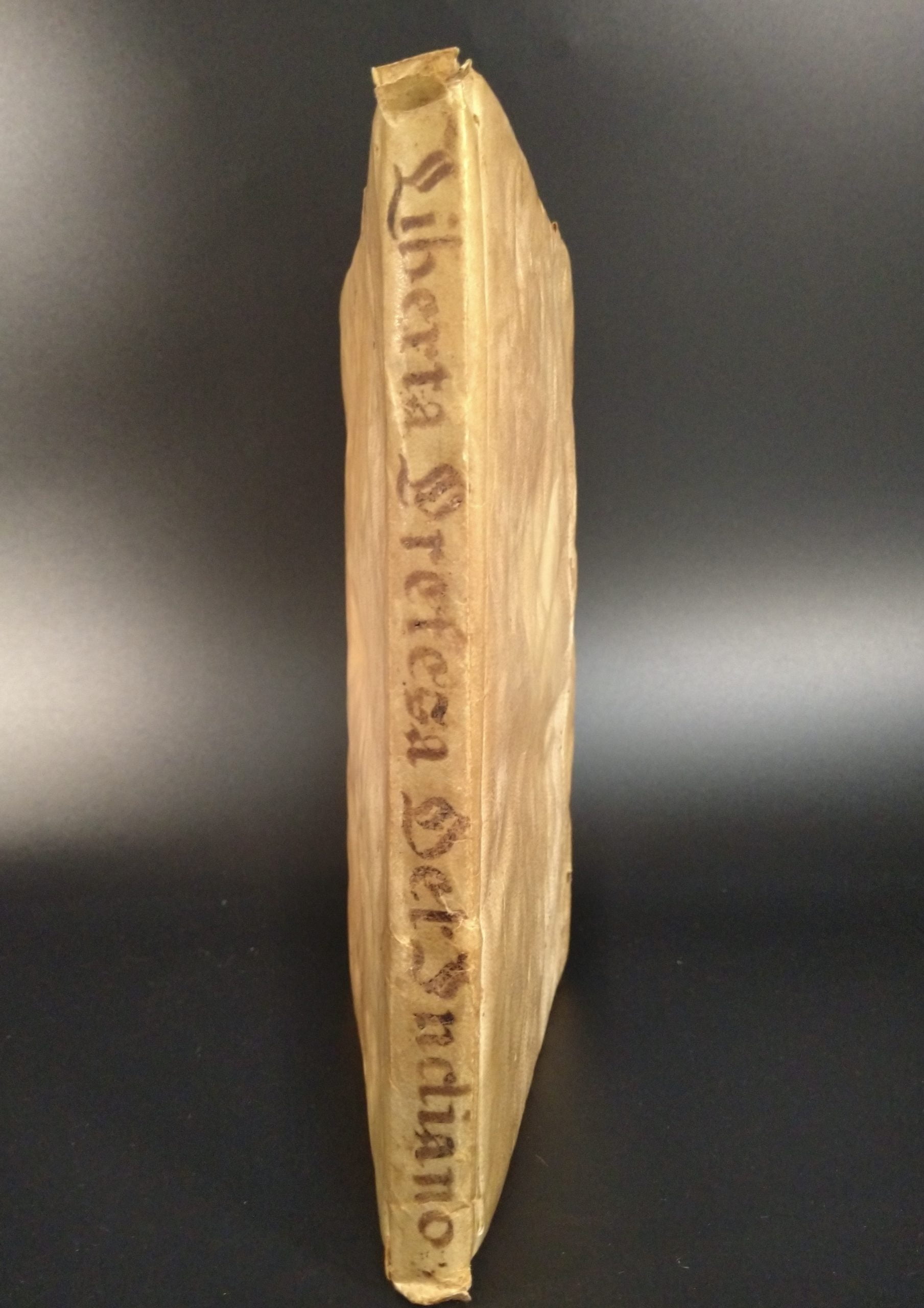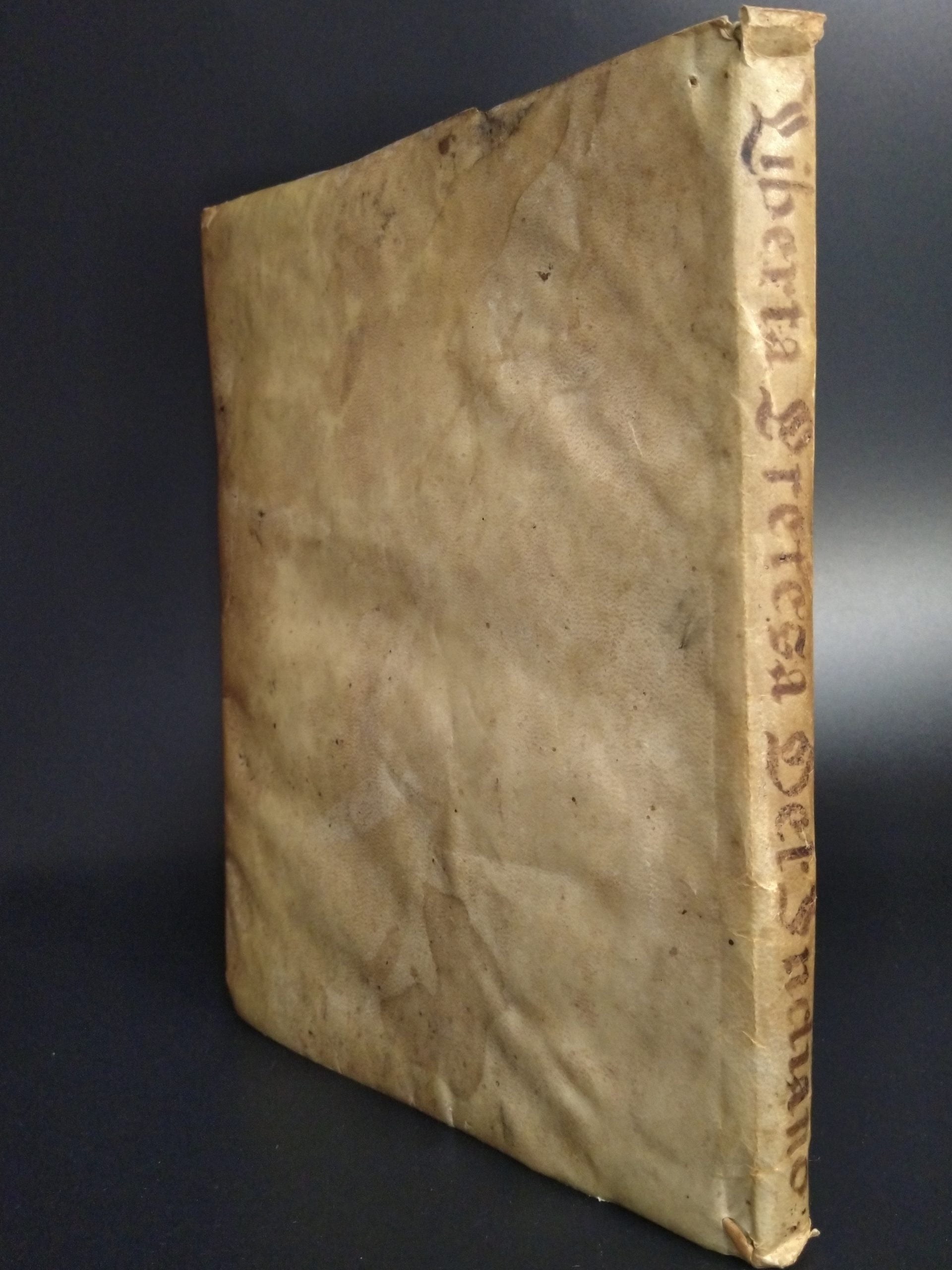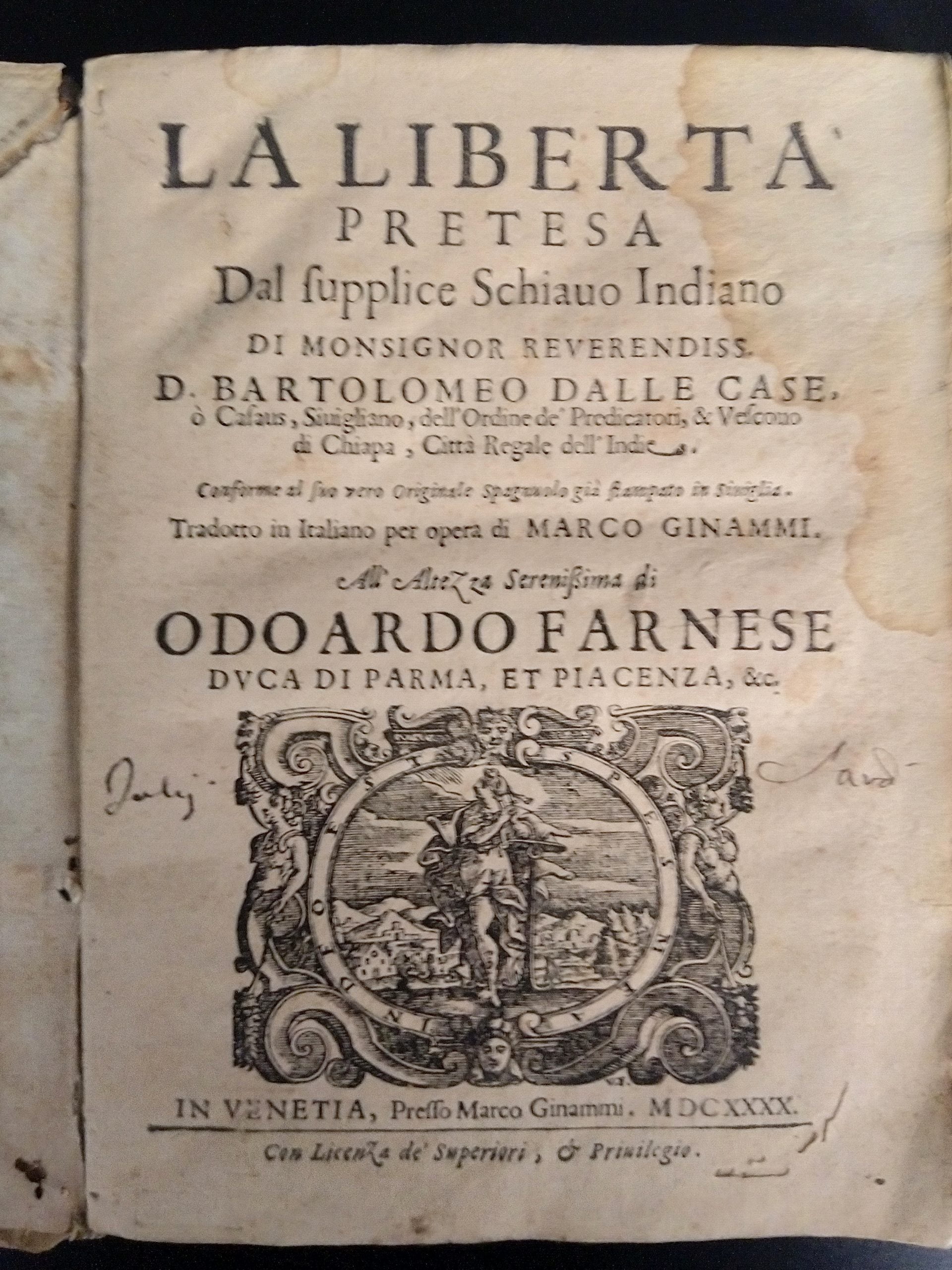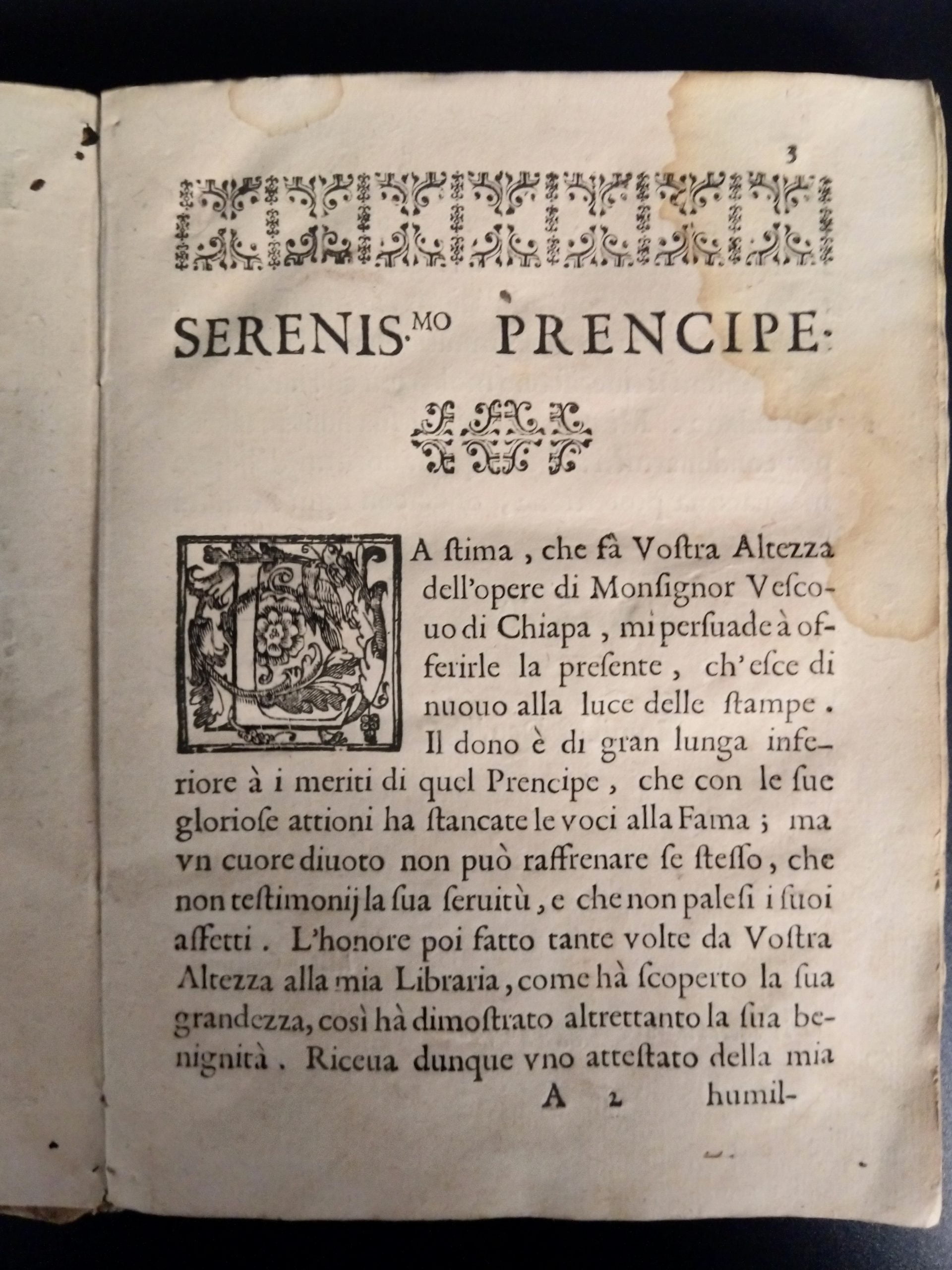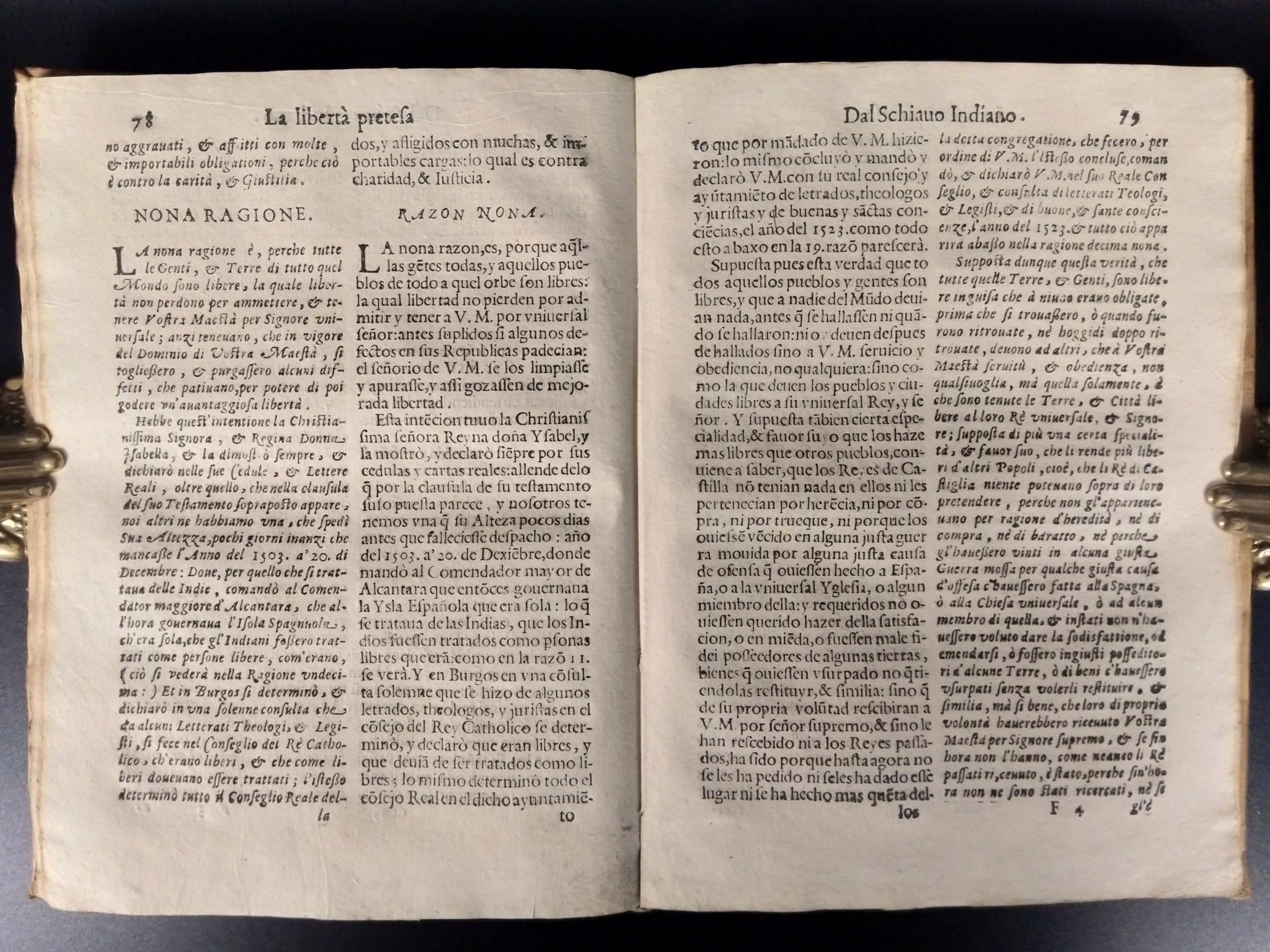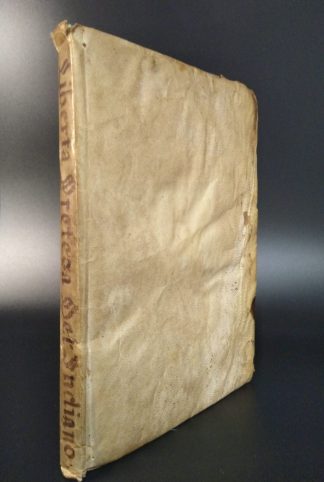CASAS, Bartolomé, de las
SLAVERY AND THE SPANISH COLONIES
La libertà pretesa dal supplice schiavo indiano
Venice, M. Ginammi, 1640£2,250.00
4to. pp. 155 (iii), last blank. Roman letter, with Italic, double column. Woodcut printer’s device to t-p. Water stain to upper outer corner of first three gatherings, many lower edges untrimmed, maginal flaws to a few ll. at tail, worm trail to lower margin of A1-A3. A good, thick paper copy in contemporary vellum, title inked to spine, couple of old stains to covers, contemporary inscription ‘Iulij Card[inalis] (?)’ to t-p.
Second edition of the first Italian translation of this major work of American colonisation. Bartolomé de las Casas (1484-1566) was among the most influential figures in the definition of juridical and social principles for the Spanish colonisation of the Americas. One of the earliest settlers, he freed his native slaves in 1515, later defending their rights in front of the Emperor Charles V. In the 1520s, he joined the Dominican order and acted as a missionary for several years. He was the first to be appointed to the office of ‘Protector of the Indios’, responsible for the well-being of the natives in the colonies. Originally published as ‘Entre los remedios’ in Seville in 1552, ‘Libertà’ first appeared in Italian in 1636 as ‘Il supplice schiavo indiano’. Addressed to Charles V, it was a manifesto (in 20 points) against ‘encomienda’, i.e., the Spanish settlers’ practice, authorised by the Crown, of exacting tributes and forced labour from the natives. It gave fundamental contributions to ‘the development of a canon law seeking to keep separate…the reasons of the evangelisation of new peoples and those of the state’, and to reflections on the natural right of the natives and the necessity to balance evangelisation and human dignity (Dalla Torre, 9-10). Translated by the printer Marco Ginammi, but maintaining the Spanish original, the 1640 edition was dedicated to Odoardo Farnese, Duke of Parma, who had visited his bookshop in Venice. Ginammi, who had also printed Bartolomé’s work on the conquest and destruction of the Indies, decided also to print that on the natives’ right to freedom because ‘freedom should come before conquest’. Ginammi was catering to the growing interest of the Venetian public in the conquest of the Indies and the particular success of Bartolomé’s not always orthodox works. Indeed, Venetian readers, ‘proud of the independence of their territory’, probably accepted more readily Bartolomé’s statements in defence of freedom over subjection, which also ‘introduced several doubts on the legitimacy of the dominion of the Spanish government in America’ (Serafin, 148). A remarkably influential early work on law, religion and human rights.
Alden 640/46; JFB C137; Sabin 11245; BL STC It. C17, p. 196 (1657 ed.). S. Serafin, ‘La conquista americana nell’editoria veneziana dei secoli XVI and XVII’, Rassegna Iberistica, 56 (1996), 129-51; G. Dalla Torre, ‘Presentazione’, in M. Martinelli, Il pensiero giuridico di Bartolomé de Las Casas e l’evangelizzazione delle Indie (Rome, 1993).In stock


